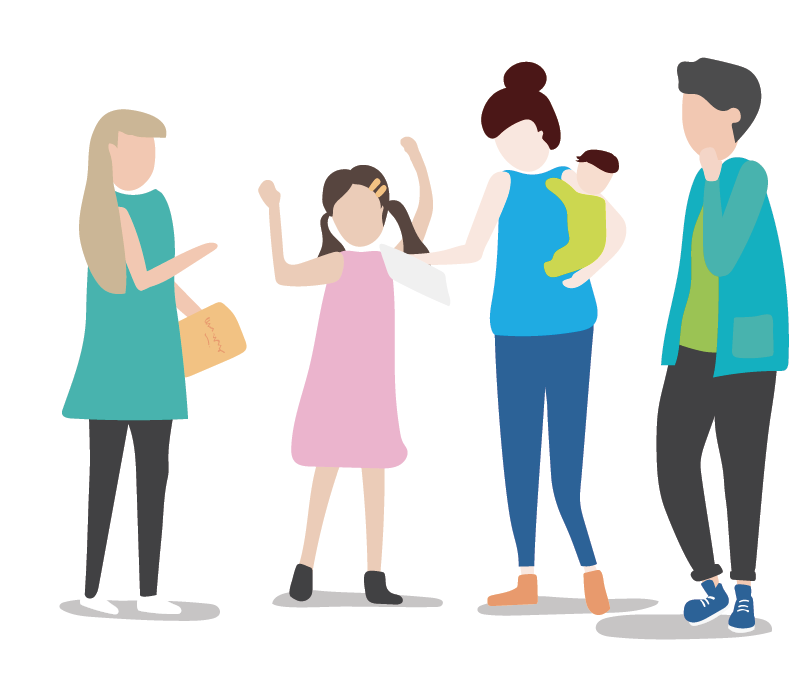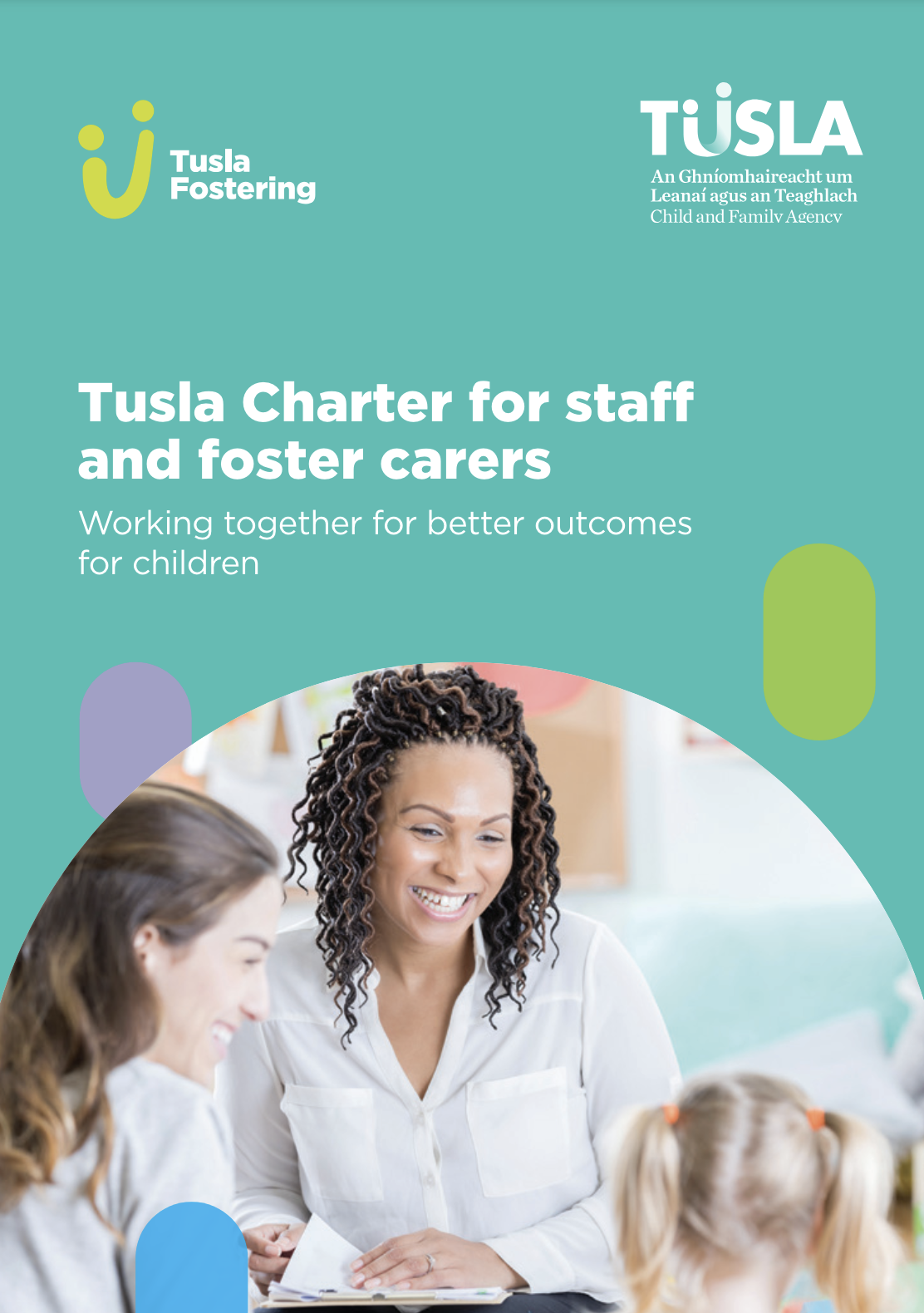Providing Foster Care
The role that foster care plays in the life of a child is immeasurable. Foster carers open their homes and lives to children who need to be cared for away from their birth family. They give them an opportunity to live as part of another family. Creating an environment for this to be successful is both challenging and rewarding. The guide below may help you as you engage with the children in your care.
Qualities you need as a foster carer
Respect
You need to have:
- a healthy respect and love of children and young people
- flexible attitudes
- non-judgemental perspective on life.
Having good people skills
You need to be able to:
- negotiate and compromise when faced with change, stress, and challenge
- understand and accept a child who has been abused or neglected
- understand and be empathetic of the child’s parents’ circumstances
- help the child understand why they are separated from their parents without judgement
Be open to learning and accepting support
When you have a child placed in your care, you need to be open to the training and supports that we provide. This will help to increase your skills and knowledge about foster care. You should be open to:
- getting involved and engaging with social workers who supervise and support foster care placements
- supporting regular contact between the child and their birth family.
Caring for children in foster care
Accepting the child: building self-esteem
Children need to experience being unconditionally accepted and valued for who they are, their difficulties and strengths. When a child feels accepted, it contributes to their sense of worth and this builds self-esteem and resilience. This helps the child to enjoy success and cope with setbacks.
Being available: helping children to trust
You need to be available physically and emotionally to meet the child’s needs. This allows a child to experience consistency and predictability in the world. The child needs this to feel safe and supported. When a child feels safe, they can:
- trust that their needs will be met consistently and appropriately
- gain the confidence to explore the world around them
- learn to trust adults
- begin to engage with other parts of their development like education and friendships.
Responding sensitively: helping children to understand and manage their feelings and behaviour
When children experience instability and trauma, they often experience the world as a frightening place. This can affect how they behave and react to situations presented to them. Behaviours are often coping mechanisms children have developed to help them feel safe, emotionally regulated and stable.
Giving the child time to adjust
Even when children move to a safe and supportive environment it will take time for a child to be able to adjust for some behaviours to change. Children need to really believe and understand they are safe and supported before they can start to deal with and heal from their traumatic experiences.
Understanding that sharing their emotions may be hard for them
Understand that challenging behaviour is sometimes how children communicate their emotions. Respond to the child rather than the challenging behaviour.
Support and be there for children as they experience all their emotions – positive and challenging. This will allow them to process their experiences and move into healing.
 Seeing things from their point of view
Seeing things from their point of view
Stand in the child’s shoes: think and reflect on what the child may be thinking and feeling. This will help you to meet the child at their level and to understand their needs.
Self Care
Be aware of your own feelings so that you can manage them and understand your own emotions and triggers. When you do this, it will help the child to learn about and regulate their own emotions and to understand the thoughts and feelings of others.
In Tusla we believe that when a foster carer reaches out for support this is a sign of resilience. We will work with you to avail of the supports you may require.
Co-operative caring: helping children to feel effective
Be aware that the child is a separate person with:
- wishes
- feelings
- goals.
They need to feel supported and valued.
Look for ways to help the child feel more competent by, for example:
- respecting the child’s choices (within safe limits)
- using negotiation
- using cooperation to manage behaviour.
Promote independence and life skills. This helps the child to:
- feel their views are important
- learn to compromise
- learn to co-operate.
Promoting family membership: helping children to belong
Include the child in your family life for however long the child is to stay.
Support the child in belonging to two families – their birth family and the family they are now part of. This helps the child to learn they can belong to and love two families.
Include the child in:
- family events
- activities
- trips including family holidays.
Do not judge the child’s birth family.
Help the child to prepare for adult life.
Embrace and celebrate a child’s culture, religion and customs. This will help them to live authentically with a clear identity.
Rights of foster carers
Fostering is rewarding, but at times it is challenging. Children in foster care have rights that we need to make sure are always upheld. We ask foster carers to help us do this, but equally it is important to remember that you as a foster carer also have rights.
What you can expect from Tusla staff:
You have the right for our staff to treat you with:
- dignity
- consideration
- respect.
You have the right to have a supportive relationship with Tusla and to feel safe in your role as a foster carer.
You have the right to:
- give input into the decisions about the child in your care
- be treated as a member of the team in developing care plans for the child.
Clear explanations
You have the right to a clear explanation or description of the role of:
- you as a foster carer
- the child’s family
- Tusla.
You have the right to receive pertinent information about the child in your care.
Your own family
You have the right to continue your own family patterns and traditions.
You have the right to refuse a placement into your family if you feel:
- you cannot meet the needs of the child
- the placement will affect the well-being of your family.
Legal hearings and other information
You have the right to be notified, in advance, of any court hearing, case conference or review concerning a child in your care. You have the right to be present where appropriate and to have the final outcome communicated and explained in full.
You have the right to be included in the long-term planning, including aftercare, for the child who is in foster care.
Foster Carers are expected to:
We as an organisation ask that foster carers help us work with children in foster care to make sure that their experience is a positive one. We ask you to advocate for children in your care and to do the following.
Respect a child’s biological family’s:
- traditions
- culture
- values.
Please promote and encourage the child’s visits with their family of origin (known as ‘contact visits’ or ‘access’).
 Please attend the on-going training and supports we provide so you can develop more knowledge and expertise about the care of a child in care.
Please attend the on-going training and supports we provide so you can develop more knowledge and expertise about the care of a child in care.
We ask you to:
- work co-operatively as members of the child’s care team
- make sure you prioritise meeting the child’s health and safety needs.
To ensure that fostering is the best experience for everyone involved, we are committed to working collaboratively with foster carers. We will adhere to our values of respect, trust, empowerment, and kindness.
Please see foster care charter for more information.
Foster carers as ‘mandated persons’
The Children First Act 2015 places a legal obligation on certain people, many of whom are professionals, to report certain child protection concerns to us in Tusla, the Child and Family Agency. The law calls these people ‘mandated persons.’ If we ask them to, these mandated persons must help us to assess child protection concerns about children who have been the subject of mandated reports which are reports that have been made to Tusla about the protection and welfare of a child.
Mandated persons include certain people who have contact with children, or families or both. This is because their qualifications, training, and experience, put them in a key position to help protect children from harm.
Foster carers who are approved by Tusla are mandated persons and must complete online Children’s First training. Your Fostering Link Worker will tell you about this.
As a mandated person you have two main legal obligations under the Children First Act 2015, to:
- report harm of children to Tusla
- help us, if we ask them to, to assess any concern that has been the subject of a mandated report.
As a mandated person, under the legislation you must report any knowledge, belief, or reasonable suspicion that a child:
- has been harmed
- is being harmed
- is at risk of being harmed.
The Act defines harm as single and multiple instances of:
- assault
- ill-treatment
- neglect
- sexual abuse.






